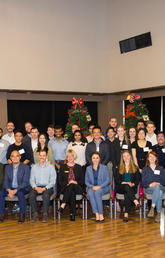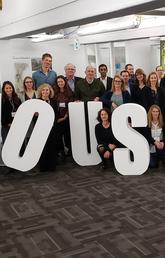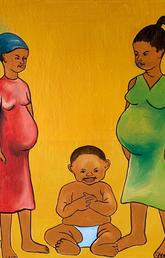Nov. 22, 2019
Nationwide research-a-thon examines how municipalities address climate change

We often hear about what measures provincial and federal governments are taking in an attempt to mitigate climate change. But have we ever asked what individual cities and municipalities are doing?
This was the question a group of law students set out to answer as part of a nation-wide research-a-thon hosted by the law schools at the University of Windsor and York University, on the Global Law Clinics Day of Action on Climate Change Nov. 18.
Led by second-year student Dana Poscente and the Environmental Law Society, 10 law students, four faculty members, and the lawyers in the Public Interest Law Clinic worked together to discover how Calgary is tackling climate issues through city bylaws, policies and other plans.
“Some of the biggest issues in Calgary relating to climate change are building codes — whether buildings are energy efficient and being maintained properly — as well as transportation. Most people in Calgary drive, usually by themselves,” explains Poscente.
Some of the questions the UCalgary team was tasked with exploring included what by-laws the city can enact or enforce to reduce greenhouse gas emissions, if municipalities can refuse to expand urban boundaries, and if municipalities could adopt legally binding carbon budgets.
We weren’t doing this to criticize what municipalities are doing. We want to support municipalities so that they can create meaningful climate change policy going forward.
Professor Sharon Mascher was one of the faculty members helping the students during the event.
“It was great to see a group of UCalgary law students participate, alongside other law students from across Canada, in this research-a-thon. The role that municipalities play in finding solutions to climate change is often overlooked and so this research will help fill some important gaps in that conversation,” says Mascher.
All of the research and findings has been sent back to the team at the University of Windsor, where it will be edited and made available online for municipalities and community partners across the country to access.




